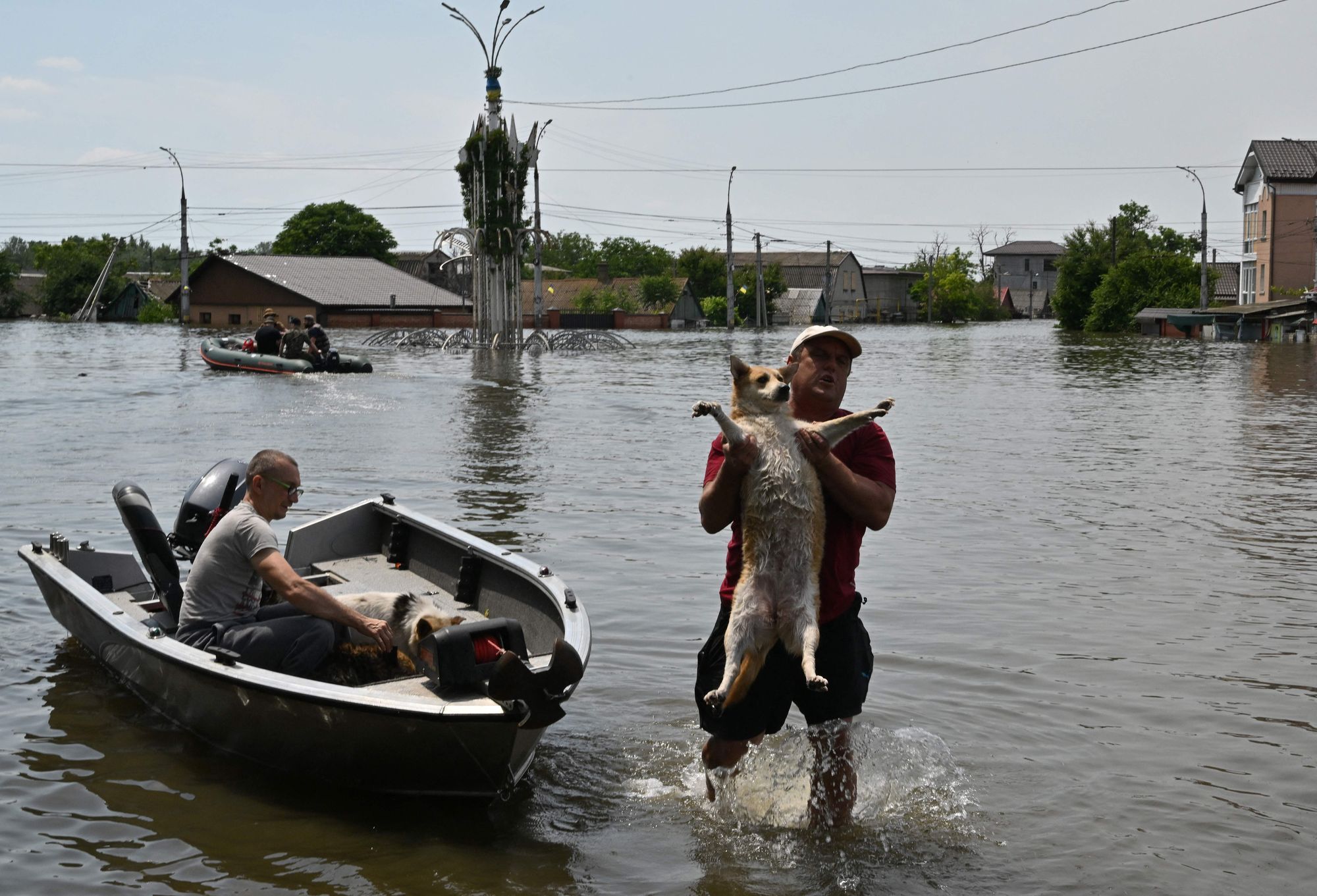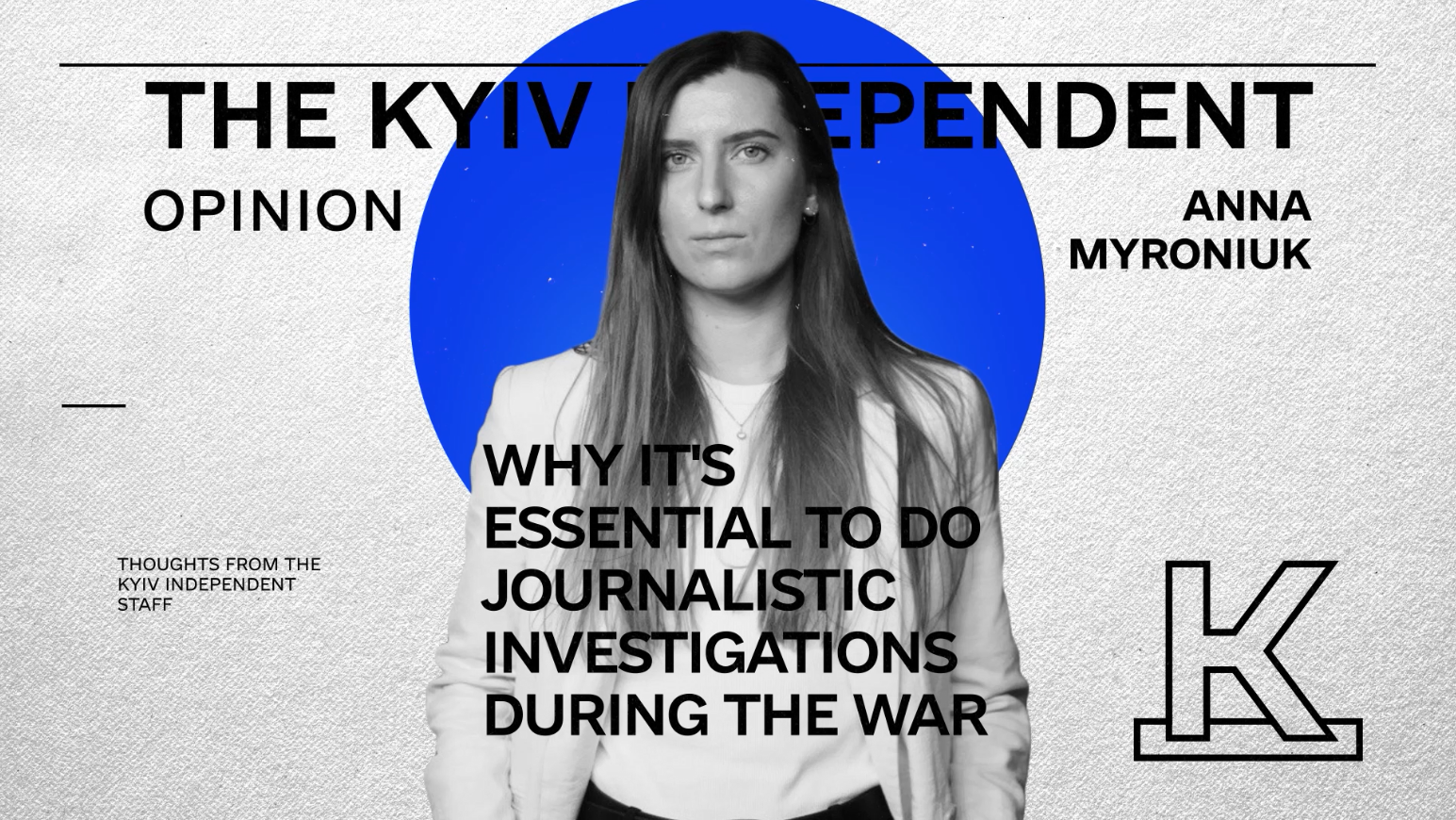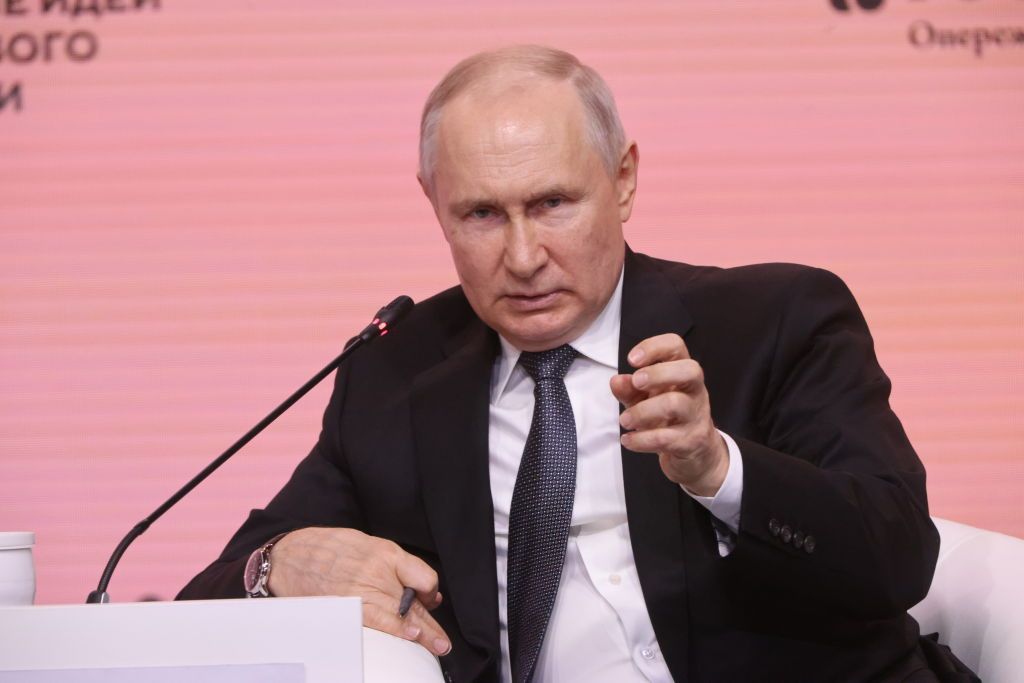OCCRP: Ukrainian grain exported through tax-avoiding ‘shell firms,’ robbing country of wartime revenue

Editor's note: This investigation was initially published by the Organized Crime and Corruption Reporting Project. It was reported with the support of Journalismfund Europe. As an OCCRP member center, The Kyiv Independent reposts it with permission.
Reporters looked into who imported millions of euros of Ukrainian “black grain” into the European Union. They found liquidated companies, proxies — and multinational agribusiness giants.
Key findings:
- Ukraine is investigating hundreds of firms, many created since Russia’s full-scale invasion scrambled the grain market, for allegedly failing to properly document their trading in Ukrainian grain or to pay taxes on it.
- Some of the EU companies that imported this grain from Ukraine raise serious questions themselves.
- Several had been ordered shut down by Hungarian authorities but continued trading. Some of the men listed as their owners and directors were patients in psychiatric hospitals; one is an aspiring TikTok influencer.
- The Romanian subsidiaries of major international agribusiness traders — COFCO International, Bunge, Viterra, and Ameropa Holding — also imported grain through Ukrainian companies under investigation.
This April, hundreds of Romanian farmers used tractors to block the Halmeu border crossing with Ukraine, protesting a flood of cheap grain from their war-torn neighbor. “We want to help, but not at any price!” they chanted.
“The imports from Ukraine are a big loss for us,” said David Gheorghe, a farmer who is also the mayor of the nearby town of Moftin. “They’ve filled the country with Ukrainian grain, and for us this is unfair competition.”
With Ukraine’s seaports blocked since Russia’s full-scale invasion last year, the number of grain trucks crossing Halmeu has skyrocketed: From just 10 per month in the early days of the war to 1,600 per month last fall.
In response to the farmers’ protests, Romania and other countries temporarily banned Ukrainian grain imports.
Ukraine’s President Volodymyr Zelensky has criticized the European restrictions as a threat to his country’s economy.
But Ukraine’s agricultural sector has also been damaged by the country’s own corruption, a new investigation by OCCRP and RISE Project, OCCRP’s Romanian member center, has found. Trade data obtained by reporters shows that, in the first seven months of Russia’s full-scale invasion, much of the grain passing through Halmeu and other border crossings was exported by dubious Ukrainian companies that are accused of tax evasion and other crimes.
These companies are among more than 300 under investigation by the Ukrainian authorities since last September. Prosecutors say they defrauded the state of at least $140 million last year alone.
As part of the investigation, authorities have seized tens of thousands of tons of grain from some of the companies, according to court records seen by reporters. Some have challenged these seizures, and the court cases are ongoing.
Multiple high-ranking officials are accused of abusing their positions to help set up the tax evasion mechanism, including senior customs officers working at ports in the Odesa region.

To better understand how much corn, barley, wheat, and other grains these companies are exporting to the European Union — and who is buying it — reporters cross-referenced their names with customs data from the trade data aggregator ImportGenius and information from Romania’s Food Safety Directorate.
The available data, which covered the first seven months of the war, included 80 suspect Ukrainian companies. They delivered at least 1.7 million tons of grain, worth $495 million, to companies in Romania, Hungary, and the Czech Republic over that period. By comparison, Ukraine exported just over twice that amount of grain, worth about $1 billion, to Romania over the same time frame.
“Most of the grain export that’s happening now is not even close to bringing Ukraine the benefits it should be bringing,” says Maryan Zablotskyy, a Ukrainian legislator who undertook his own investigation into the grain market four years ago.
Reporters found that among the buyers of the grain were offshore companies, Hungarian companies that had been ordered dissolved for failing to file paperwork, proxy companies in Hungary and the Czech Republic, companies with a history of tax evasion, companies owned by or employing politically connected figures — as well as major international grain traders including COFCO International, Bunge, Viterra, and Ameropa Holding.
A man who appeared in the paperwork as the owner of one of these importers told reporters he had been institutionalized in a psychiatric hospital and approached by someone who paid him to put his name to the company. He pointed to other patients who had also been exploited in the same manner.
None of the suspect Ukrainian companies that OCCRP and its partners attempted to contact could be reached through their registered phone numbers. COFCO International said they had no record of transactions with the suspect Ukrainian companies listed in the data. Viterra said it had no record of “direct business relationships” with any of them. Bunge and Ameropa did not reply to requests for comment.

Strawmen selling grain
The Ukrainian probe began when investigators noticed that a large number of suspicious companies, many of them newly established, were evading taxes while trading in grain worth hundreds of millions of dollars.
Documents filed by prosecutors show hundreds of companies are under investigation for allegedly being registered by “unidentified persons,” showing signs of “fictitious behavior,” and avoiding tax payments.
The people behind the scheme “transferred products from one ‘shell company’ to another … to ‘confuse’ the trade chains and avoid paying mandatory payments to the budget,” Ukraine’s Security Service said in January. The country’s Economic Security Bureau told reporters it could not provide any more information about the investigation, as it was still ongoing.
But additional details about the “black grain” trade are available in a report published in April by a parliamentary commission, which painted a dismal picture of Ukraine’s customs service.
The service failed to properly check over 600 potentially suspicious grain exporting companies it had been informed about by the taxation agency, the report said. These companies “had risks of tax evasion, failing to return their foreign currency earnings to Ukraine as required by law, and money laundering.”
These are precisely the factors that made “black” Ukrainian grain so cheap on the European market, the head of the commission and member of parliament Yaroslav Zhelezniak told reporters. Such crimes also lead to massive losses to Ukraine’s budget, he said.
“There are zero, zero, zero taxes on it,” Zhelezniak said, naming various police agencies he said have a presence at Ukrainian customs posts. “What are these scumbag law enforcement agencies there for, if they don’t see it?”
The companies were not systematically inspected, the commission’s report said. In some cases, it said, customs officers interviewed their directors only by phone or video chat and failed to verify their identities. The commission found that more than half of the exporters had filed no customs declarations at all, and a majority of those that had been filed were processed within 90 minutes of receipt. One declaration took just nine minutes.
An easy mark
To see who is importing “black grain” from Ukraine and how much, reporters cross-checked customs data against the list of Ukrainian companies accused of violations, the names of several known Romanian, Czech, and Hungarian importers of Ukrainian grain, and several offshore companies that import Ukrainian grain.
The most prolific Ukrainian exporter on the list was Talstaktiv, a firm that prosecutors say “legalized income obtained by criminal means,” failed to pay income tax, and didn’t return its foreign-currency earnings. The company was established in February 2021, a year before Russia’s full-scale invasion.
Some time this year, while it was under investigation, Talstaktiv changed its address and took the new name Technotrade Supply. Over its short existence, the company’s registered owners changed three times.
According to customs data, the company exported more than $150 million worth of grain in 2021 and 2022 to two Hungarian companies that were ordered to be liquidated by a Hungarian court for failing to file financial documents and accurate contact information.

The court also prohibited these key Hungarian importers — called The Mark Global and Borko Trade — from conducting any further activity. Despite this, The Mark Global continued to trade. Between its dealings with Talstaktiv and other firms, the company imported 283 grain shipments worth $157 million between 2021 and 2022.
From grain sales made just to Borko Trade — which imported some $336 million worth of grain between 2020 and 2022 — the Ukrainian state lost an estimated $20 million in unpaid taxes, according to prosecutors’ documents. Hungarian authorities proved unable to establish who was really behind the company. According to the country’s tax and customs directorate, Borko Trade’s legal successor and the taxpayer’s contact information were both unknown, and mail sent to the company was returned due to a false postal code.
Apparent proxies from psychiatric institutions
When reporters looked into who was behind The Mark Global, Borko, and two other associated firms, they found several young men listed as current or former shareholders or directors who appeared to be proxies, including an aspiring TikTok influencer. One of them told reporters he, and others, had been approached to put his name to the company while being treated in a psychiatric institution.
The trail to these men led through the director of The Mark Global at the time of its dissolution, a Lithuanian named Sergiejus Kolobovas. Kolobovas has no record of properties or businesses in his home country.
He was also the CEO of another Hungarian importer, Supstan, which bought sunflower oil from Ukraine worth $61.8 million in 2020 and 2021 before authorities ordered it to be dissolved in 2022.
The man listed as owning the company before Kolobovas — while these transactions took place — is Ondrej Stana, a 27-year-old Czech national who makes personal development videos on TikTok.
Stana told reporters he was being treated for bipolar disorder in the Czech city of Brno several years ago when a man named Albert approached him and other patients and asked them to “join” the companies.
“All this for 400 euros a month, which I received about seven times over two years, at most,” he said. “Very quickly I realized it was a mistake, but I didn’t know what to do. I asked them to remove my name.”
A Ukrainian named Albert Yanishevskiy, who was just 23 years old when these companies were set up in 2019, appears to be behind the email address used by The Mark Global in the Hungarian company registry.
Contacted by reporters, Yanishevskiy said he previously ran a law office in the Czech Republic that opened companies for a fee. He said The Mark Global was one such company, but said he had no role in it. He denied having approached anyone in a psychiatric clinic to open a company. Instead, he said he had contacted certain people to sign forms after being told by those setting up the companies “that this person will be the director of this company.”
The CEO of The Mark Global was Matej Bartík, a 30-year-old Slovak citizen. He, too, Stana said, had been in the psychiatric hospital and been approached by Yanishevskiy. But when reporters reached Bartik, he denied that The Mark Global was his company and stopped responding.
Bartik’s trail, reporters found, leads back to alleged criminal activity in Ukraine.
At various times, he was both a managing director and a shareholder in a Czech computer and tech services company that had previously been owned by a Ukrainian man named Viktor Holovchyk.
Since 2019, Holovchyk’s companies have been under investigation in several cases of alleged money laundering, one of which involved the help of bank officials from the National Bank of Ukraine.
In one of these cases, prosecutors said that a Holovchyk company laundered money of illicit origin. In its defense, a lawyer for the company said the money in question represented advance payment from selling grain. The case is ongoing. Reporters were unable to reach Holovchyk for comment.

A third man mentioned by Stana as a psychiatric patient who had been asked to put his name to a company was Lukáš Neradílek. Stana sent reporters a photo of himself with Neradílek; another photo of Neradílek appears to show him in the psychiatric hospital. His name appears on two companies that purchased grain from Ukraine: Resale Consult in Slovakia and GD Delivery Consult in Hungary.
Resale Consult imported $43 million worth of grain from Ukraine’s Mykolaiv region between 2019 and 2021, and GD Delivery Consult bought soybeans worth $2 million in 2019.
Between them, these five companies — The Mark Global, Borko, Resale Consult, GD Delivery Consult, and Supstan — bought over $600 million worth of grain and sunflower oil from Ukraine between 2019 and 2022. They then sold these products to companies in Turkey, Korea, Belgium, Romania, and several African countries.
COFCO carries on
The Ukrainian MP Zablotskyy, who undertook his own investigation into the grain market four years ago, told reporters that big international traders were behind the current underground deals — and that the best way to stop them was to try to have fines imposed on them outside Ukraine.
“As practice has shown, it is very difficult to prosecute this in Ukraine with the law enforcement system we have and the corruption we have,” he said.
Reporters found that COFCO International Romania, a subsidiary of the Chinese multinational agriculture business COFCO International , was one company that had imported grain through Ukrainian companies under investigation.
COFCO’s Romanian subsidiary imported $2.3 million worth of sunflower seeds into Romania through Talstaktiv, paying just $0.40 a kilogram in May 2022 when the price on international grain exchanges was $0.67 per kilogram.
In total, COFCO International Romania imported over $145 million worth of grain into the country in the seven months between February and September for which data is available. Of this amount, about 145,500 tons of grain, worth nearly $37 million, came through Ukrainian companies now under investigation.
Of these, the largest of COFCO International Romania’s suppliers, exporting to it over $12 million worth of grain, is the Odesa-based Greenprime. At least for some shipments, the purchase price was much lower than normal: In August and September 2022, Greenprime exported rapeseed to COFCO International Romania for $0.38 a kilo, compared to $0.64 on the international market.
Greenprime, founded in May 2021, also supplied a Romanian firm called Hercules which is controlled by the son of Gheorghe Bunea Stancu, the former head of the council of Braila county. Bunea Stancu was sentenced to three years in prison for abuse of office and for his involvement in the improper financing of a political campaign. Greenprime also exported grain to Bunge Romania, a local subsidiary of the American agri-business giant.

COFCO International Romania did not respond to requests for comment. Its parent company, COFCO International, said that the Romanian subsidiary “has no record of, and has not entered into, any transactions with the companies you have listed. We strongly recommend you question the sources and records you have used to determine the claims made in your letter, which are not correct.”
When reporters sent a follow-up email explaining that their findings had come from aggregated customs data and providing examples, the company wrote that its previous statement “remains valid” and questioned whether the data referred to “sellers” or “shippers” without elaborating further.
(The ImportGenius data used by reporters indicates the exporter or “shipper” of every grain shipment, but this does not necessarily imply a direct business relationship with the recipient.)
The Romanian subsidiaries of two other major international traders — Viterra (formerly known as Glencore Agriculture) and Ameropa Holding — were also importing grain through dubious Ukrainian firms.
Three Viterra subsidiaries imported $9.3 million worth of grain through dubious Ukrainian companies: In 2022, Viterra Rotterdam imported soybeans and sunflower oil through Тalskativ, one of the top suspected Ukrainian offenders, worth $3.5 million. Viterra Romania imported $4.4 million worth of grain and sunflower seeds through the Ukrainian companies over the same period. And Viterra Hungary imported sunflower seeds worth $1.4 million through another Ukrainian company now under investigation.
Responding to questions, Viterra said it had “conducted a thorough internal review and can confirm that to the best of our knowledge, we have no record of any direct business relationships with any of the third parties mentioned in your enquiry.” The firm added it “has a zero-tolerance policy for illegal or corrupt business practices of any kind.”
“Across our business, Viterra has extensive policies and procedures in place to ensure all counterparties we work with do not have any history of corrupt activities, including but not limited to tax evasion,” the firm said. It did not respond in time for publication to a follow-up email from reporters that explained the origins of the data.
Meanwhile, from July to September 2022, Bunge Romania imported $5.6 million worth of grain through the dubious Ukrainian companies, including Greenprime, according to customs documents seen by reporters. Some $1.5 million of this was imported through Pretset, a company whose VAT certificate has been revoked by Ukrainian authorities. Bunge did not respond to requests for comment.
A Romanian subsidiary of Ameropa Holding imported about $1.7 million worth of grain in Romania through companies accused of violations. The company did not respond to requests for comment.

Damalio gets busy
One Romanian grain purchaser, connected to a disgraced former Moldovan minister, appears to have begun a brisk trade in Ukrainian grain after the 2022 invasion. A majority of its imports over the period for which reporters have data were made from Ukrainian companies under investigation.
The company, Damalio RO, had no trading activity in 2021 but a turnover of almost $14 million the following year.
According to Damalio RO’s website, security for the company is provided by Alexandru Pînzari, Moldova’s former defense minister and ex-chief of the National Police. Two years ago, Pînzari was arrested for abuse of office and a range of other charges.
Damalio’s owner is a Romanian-Moldovan man with no public profile and who is also the co-owner of another company with Pînzari’s son.
Between June and September 2022, Damalio imported 971 grain shipments valued at $3.4 million from Ukraine. Of these, 785 shipments, consisting of 19,556 tons and worth $2.8 million, came from companies under investigation.
The biggest of Damalio’s suppliers is Podillya Agroservis, a company established in January 2022 that is also being investigated, in a different case, for allegedly breaking customs rules by trying to hide the origin of sunflower seeds. In August and September 2022 alone, Podillya Agroservis made 692 shipments of grain totaling nearly $4 million. Many of these shipments were sent to Damalio.
Damalio’s cheapest supplier — at one of the lowest prices seen by reporters in this investigation — was Raikomia. In July 2022, Damalio imported corn from Raikomia at just $0.07 a kilogram, or five times cheaper than the international price.
Raikomia shares a phone number with another company, set up in October 2022, from which Ukrainian prosecutors seized about 65,000 tons of wheat and corn in the Odesa region as part of their investigation into tax evasion. A court later ordered the grain to be returned.
Mihai Pătraș, a commercial director at Damalio, confirmed that the company’s turnover consists of grain transactions from Ukraine. He said he bought grain from “brokers” that had been suggested by grain farmers, but would not elaborate further.












